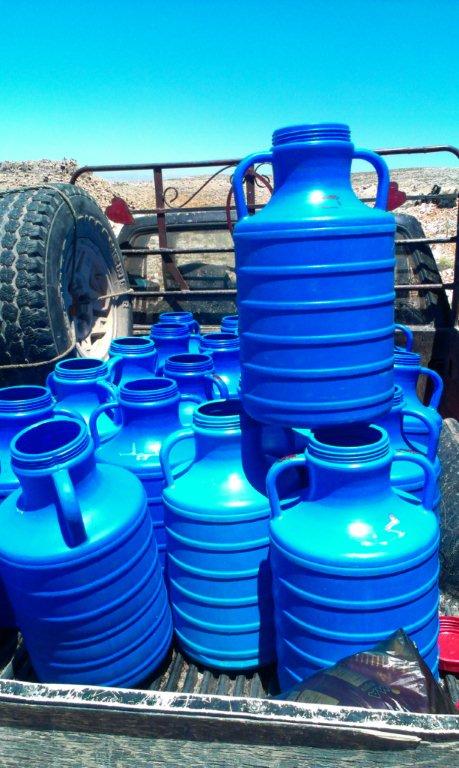FAO supports small dairy producers in Baalbek region

Lebanon has for long been dependent on imports to fulfil the domestic demand for dairy products. It is estimated that over 60 % of dairy products are imported. Following the soaring food prices, and as a way to support the national economy, the Lebanese government has increasingly prioritized on agriculture and dairy production during last five years. The agriculture sector, indeed, and especially the milk and the dairy segment, represent the major source of income for the majority of rural communities in Lebanon. A recent survey conducted by a FAO project on small dairy farmers in Akkar, Baalbek, Hermel, Beqaa, and Rashaya, indicated that over 70% of dairy farmers are categorized as poor or very poor.
Improving the livelihood of those groups, which are highly vulnerable to economic shocks, can therefore contribute to ensuring employment to many of them and to boost up, at the same time, the local dairy production.
To meet this challenge and to contribute to the decrease of the reliance on dairy products imports, FAO, in collaboration with the Lebanese Ministry of Agriculture (MoA), is implementing the second phase of a project that provides the poorest dairy producers with income generating activities and ensures good quality standards in the dairy production. The project has so far supported some thousands small farmers also through the establishment of cooperatives that are greatly helping them in joining forces to access local markets and adding value to their production.
Milk distribution to female dairy farmers
 Recently, the Dairy Cooperative of Tarayya was able to distribute 200 milk jars (40 litre) to female dairy farmers, thus benefiting up to 200 small-scale dairy farmers. The milk jars were distributed during a joint field visit to Baalbek of H.E. Minister of Agriculture Dr. Hussein Hajj Hassan and the FAO Representative Dr. Ali Moumen. During the visit, a new milk processing Center has been inaugurated in Brital. The medium-sized milk processing Center will benefit all dairy farmers associated with the Brital dairy cooperative and greatly contribute to improve the milk quality, avoiding overnight milk storage that can spoil milk quality affecting its safety. The Center is supposed to lead to an increase of the poor small-scale dairy farmers’ income from milk produce, calculated in average at the 50 % .
Recently, the Dairy Cooperative of Tarayya was able to distribute 200 milk jars (40 litre) to female dairy farmers, thus benefiting up to 200 small-scale dairy farmers. The milk jars were distributed during a joint field visit to Baalbek of H.E. Minister of Agriculture Dr. Hussein Hajj Hassan and the FAO Representative Dr. Ali Moumen. During the visit, a new milk processing Center has been inaugurated in Brital. The medium-sized milk processing Center will benefit all dairy farmers associated with the Brital dairy cooperative and greatly contribute to improve the milk quality, avoiding overnight milk storage that can spoil milk quality affecting its safety. The Center is supposed to lead to an increase of the poor small-scale dairy farmers’ income from milk produce, calculated in average at the 50 % .
Concrete achievements: from the farm to the consumers’ table
The project has so far managed to reduce to a minimum the refused milk delivered to the processing plants and to promote a better preservation of the milk quality, through a gradual transferring of know-how to the farmers throughout the value chain.
As for the transportation, for instance, the project is replacing the use of plastic with the use of stainless jars, thing that highly contributes to preserving the safety of the transported milk that, otherwise, would be exposed to dust, insects and high temperatures.
Thanks to the good quality of the milk produced, its price has also improved. The higher milk quality meets the demands of the Lebanese consumers in the Baalbek region, accustomed to the daily consumption of yogurts and cheese.
